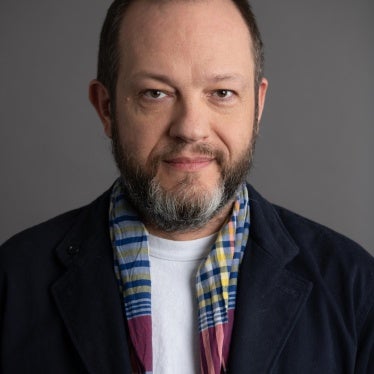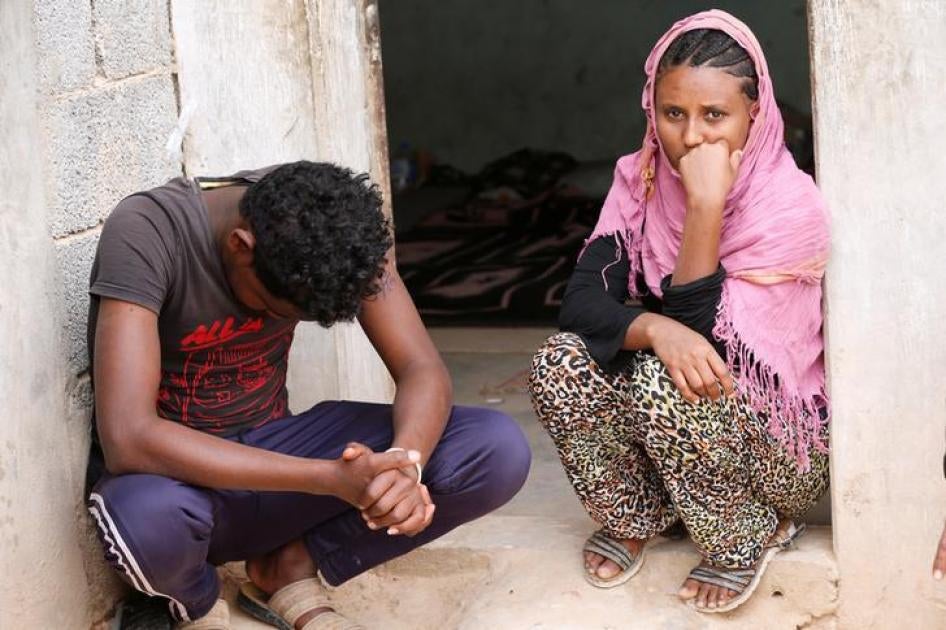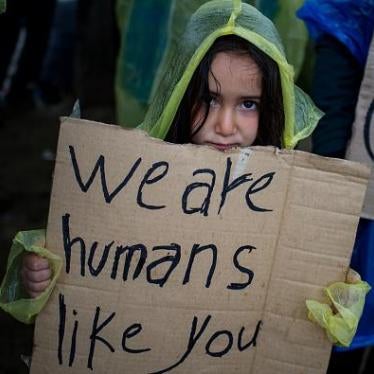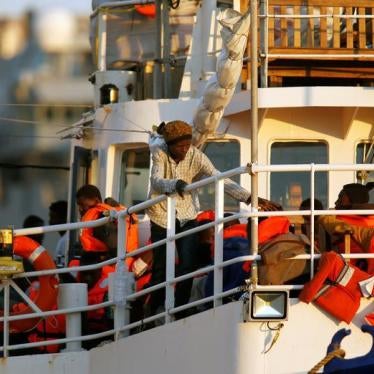The way people actually live, Niccolo Machiavelli famously argued, is so different than the way they should live, that if we focus only on the way things ought to be done and ignore how they are actually done, we will find ruin rather than preservation.
It’s not hard to imagine Italian Interior Minister Matteo Salvini or Hungarian Prime Minister Viktor Orban nodding with approval at the sixteenth century author, widely regarded as the godfather of political realism.
After all, polls suggest that people across Europe see migration as a key concern. Politicians running on anti-migration platforms have won recent elections in Italy, Hungary and Austria. And as a recent meeting of EU leaders showed, efforts to agree on a common European policy seem to come down to the notion that someone else, outside Europe, should take responsibility for migrants and asylum seekers.
So realism must mean that the correct response to irregular migration is to seal Europe’s borders, and process those who try to reach Europe in camps far from our shores?
Not so fast. There are more realistic and better alternatives.
Sealing borders encourages smuggling -- as with the illicit drug trade, the price goes up, bringing new actors into the market. When people are fleeing violence or feel they have nothing to lose, closing the door in one location often leads them to try other more perilous routes.
Curtailing search and rescue by nongovernmental groups in international waters off Libya, as Italy and Malta are currently doing, makes the sea more deadly. Those governments contend that they are deterring people from making the journey, in effect consigning some to drown so others might live.
But the data does not support claims that rescue by these groups encourages more people to try the journey. Research also suggests that migrants are willing to take enormous risks in part because conditions in Libya are so horrific. The real result of stopping rescue by these groups will simply be more senseless and cruel deaths at sea.
What about offshore processing? In theory, asylum seekers can have their claims determined in any country with a proper asylum system and adequate resources to humanely treat people. But in practice few if any of Europe’s neighbors meet that test. And to deter secondary movement to Europe, most proposals involve creating offshore detention camps. We know from Australia’s experience that such camps become places of despair and suffering.
In any event, no country in Europe’s neighborhood has yet proven willing to host such a detention camp. Given the disaster that would likely ensue they are right to say no.
What about the argument that we must keep people away, because that’s what voters want, and if we don’t take a tough line, the xenophobic populists will win, and we will lose the Europe founded on shared values we care about?
People in Europe worry about migration for sure. But their attitudes to it are complex and open to change, as reaction to the tragic drowning of the Syrian toddler Alan Kurdi showed.
Confront the manufactured crisis of the populists, explain that Europe’s duty to help some of the world’s refugees is a core value, create flexible legal avenues for labor migration, invest in integration for those who will stay, and have a credible strategy for safely returning those who have no right to stay, and you can win people round.
Ah, but the Machiavelli fans might say, that’s not possible. Europe is too divided.
Political divisions over migration are real. But they are amplified by the fact that Europe is unwilling to address even modest migration challenges. The scandalous conditions on the Greek islands are a case in point, where vulnerable asylum seekers are made to suffer because doing so supposedly deters others from coming.
Divisions are made worse by the instrumentalization of migration for domestic political objectives, despite the sharp fall in arrivals. And they are made harder to address by the fact that mainstream politicians—such as German Interior Minister Horst Seehofer, Austrian Prime Minister Sebastian Kurz and Dutch Prime Minister Mark Rutte—too often echo the siege mentality of Viktor Orban.
What’s the realistic alternative for European leaders?
Challenge the populist narrative. Explain that Europe can manage migration if governments work together to develop effective asylum systems, foster proper integration, create a credible system for the safe return for rejected asylum seekers, work to address root causes, make legal migration a credible prospect, and explain honestly the benefits and challenges of migration.
Help voters understand that in a world where almost all of people who have had to flee their own countries are hosted in developing countries, it’s important that Europeans do their bit. It’s also a Europe people might actually feel proud of instead of cynical about.
Barbed-wire fences and remote camps might make voters feel safe today but they won’t address the actual forces that drive migration or resolve the situation of people on the move, even as they empower forces in Europe who want to take the continent back to the hyper-nationalism of its bloody past.
Machiavelli’s wider writing makes clear that his argument was not that policymakers should accept the world as it is, but that they should understand the realities necessary to achieve their objectives. If it remembers that lesson, Europe can manage migration without setting aside its values.









